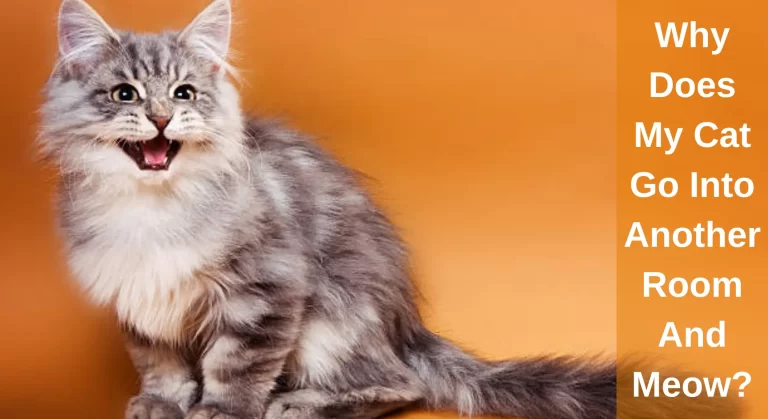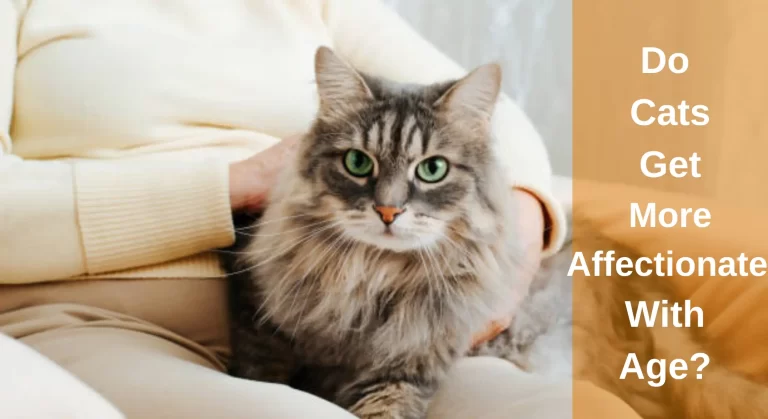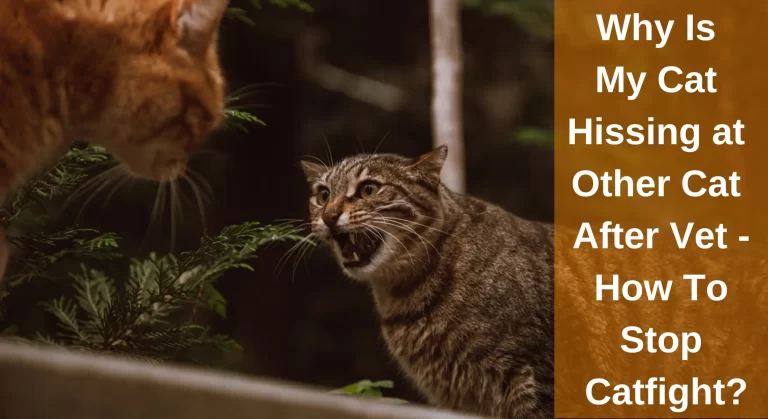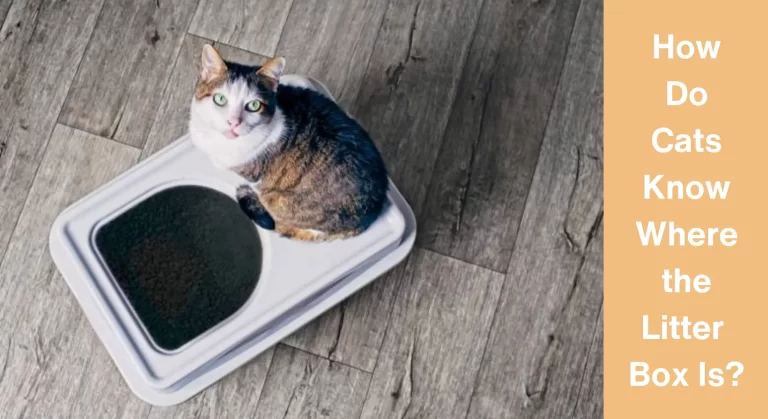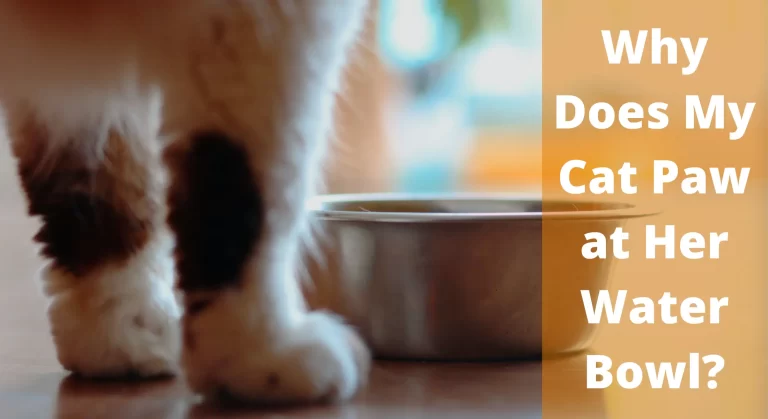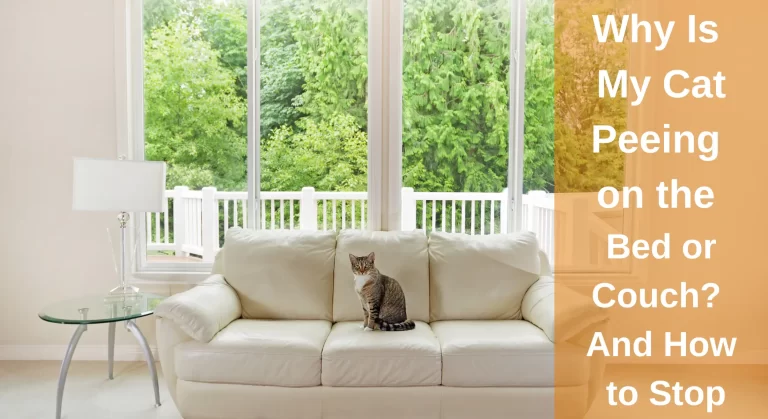Why Is My Cat Hissing at Me All of a Sudden? What You Need To Know
As cat owners, we all love our feline companions and expect them to show us the same affection. However, sometimes we may notice that our cat is hissing at us suddenly, which can be alarming and concerning. And you may wonder why your usually friendly feline companion suddenly started hissing at you.
Hissing is one of the ways cats communicate; if your cat hisses at you, it means that they are bothered, feels mistreated, insecure, uncomfortable, threatened, in pain, or under pressure in some way. They might feel that their territory is being lost to them and that they are losing control.
Even the friendliest cats will occasionally hiss if they feel threatened, angry, or outnumbered. As a responsible cat owner, it is important to understand why your cat is hissing at you and how to address this behavior humanely and effectively. In this article, we’ll explore some of the common reasons why cats hiss and what you can do to help them feel more comfortable and secure.
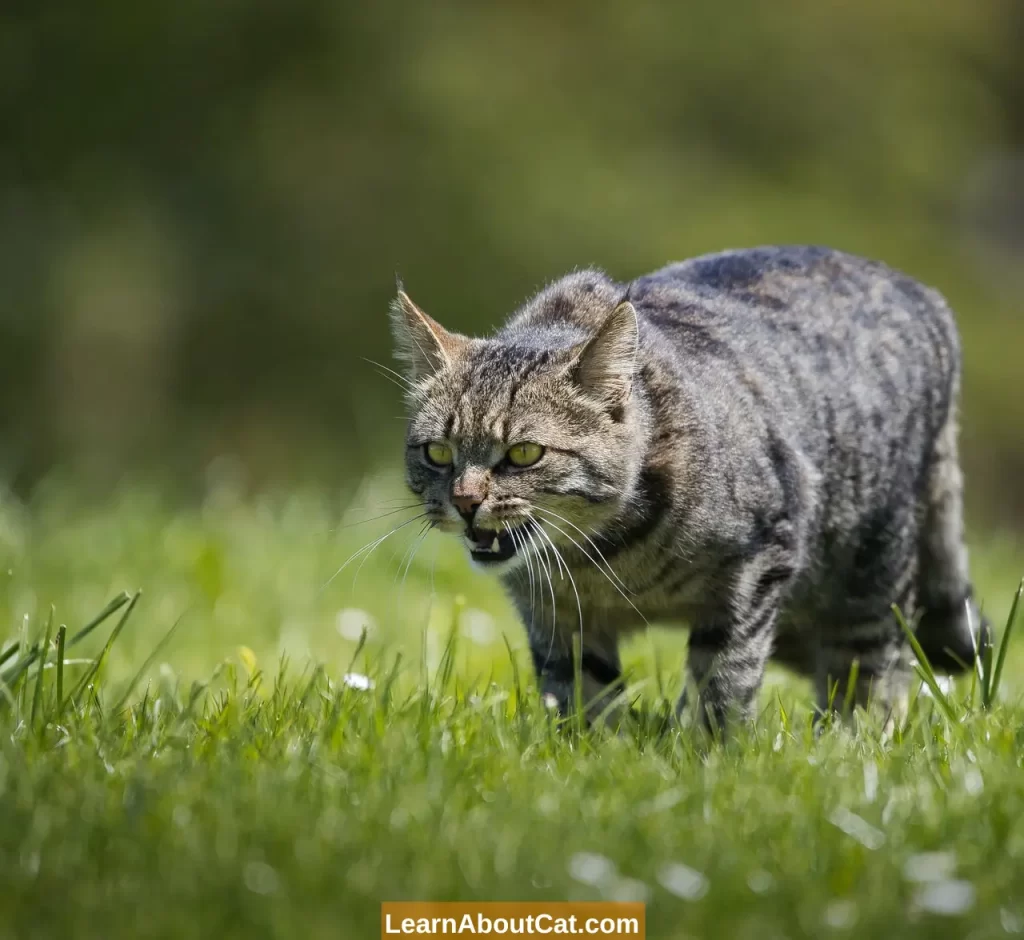
Understanding Cat Hissing
Hissing is a natural behavior for cats, which they use as a warning signal to show their discomfort, fear, or anger. The cat makes a sound when it forcefully exhales air through its mouth, creating a hissing or spitting sound. Usually, cats hiss when they feel threatened or scared, but it can also be a sign of aggression towards humans or other animals.
What Are the Types of Cat Hisses?
There are different types of cat hisses, each one indicating a different level of discomfort or aggression. Some common types of cat hisses include:
- Defensive Hiss: A defensive hiss is a warning sign that a cat is feeling threatened or uncomfortable. It’s often accompanied by other behaviors, such as flattening ears and the cat’s body posture.
- Aggressive Hiss: An aggressive hiss is a sign of a more significant threat, and the cat is prepared to defend itself if necessary. It’s usually accompanied by more intense body language, such as a puffed-up tail and an arched back.
- Fearful Hiss: A fearful hiss is an expression of the cat’s fear and discomfort. It’s often accompanied by other behaviors, such as hiding or cowering.
Reasons Why Is My Cat Hissing at Me All of a Sudden
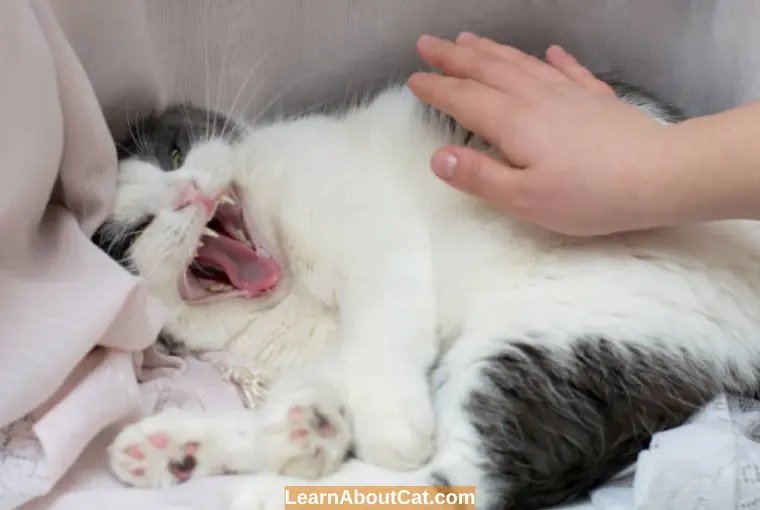
1. Your Cat is Feeling Threatened
An explanation for why your cat starts hissing at you might be that they feel threatened. This can happen for a variety of reasons, including:
1.1 Feeling Territorial
Cats are naturally highly aggressive creatures who aren’t afraid to use force to protect their territory, and they may hiss at you if they feel like you are encroaching on their space. This could happen if you accidentally invade their personal space by stepping on their tail or invading their favorite sleeping spot.
However, even though female cats have the ability to become violent when under stress, male cats are more prone than female cats to participate in territorial aggression.
If your cat suddenly hisses at you in these situations, it may be a sign that they feel like you are taking over its territory.
1.2 Aggressive Behavior from Other Cats or Animals:
If your cat shares its space with other animals, it may feel threatened by aggressive behavior from its furry roommates. This can include other cats hissing, growling, or even physically attacking them.
If your cat is hissing at you suddenly, it’s possible that they have recently had a negative encounter with another animal in the household.
Check Out: How to Stop My Cat From Bullying My Other Cat?
1.3 Feeling Trapped or Cornered:
Cats are naturally skittish and like to have an escape route when they feel threatened. If your cat is feeling trapped or cornered, it may hiss or growl as a warning sign to back off.
This could happen if your cat is in a tight space, such as under a piece of furniture, or if they feel like they can’t get away from you.
1.4 Neighborhood Cats:
A new cat may invade your cat’s territory in the area. Even if your cat just remains indoors, this can still be an issue. Your cat might perceive the presence of another cat outside the window as a threat to its home territory.
1.5 Unfamiliar Person:
If there are any new cats in the neighborhood, your cat can feel as though its territory is being taken away. If a stranger enters your home, the same outcome can happen.
2. Your Cat is in Pain or Discomfort
Your cat may also be hissing at you because they are in pain or uncomfortable at the moment. Cats are skilled at hiding their pain, so one of the first signs that anything is wrong may be their aggressive behavior. This is a survival instinct once again; when cats are harmed, they turn hostile to defend themselves.
So it’s important to pay attention to any changes in their behavior. Here are some possible explanations:
2.1 Dental Issues or Oral Pain:
Cats can suffer from various dental issues, including gum disease, tooth decay, and oral tumors. If your cat suddenly starts hissing at you while eating or when you touch its face, it could be a sign that they are experiencing oral pain.
There are other signs to look for, such as drooling, bad breath, and a reluctant appetite
2.2 Arthritis or Joint Pain:
As cats age, they can develop arthritis or joint pain, making it difficult to move around comfortably. If your cat suddenly hisses at you when you touch a particular area of its body or when you try to pick them up, it could be a sign that they are in pain.
Other signs to look for include limping, stiffness, and difficulty jumping up or down.
2.3 Digestive Issues or Constipation:
It is also possible for cats to suffer from digestive disorders, such as constipation, diarrhea, and digestive pain. If your cat suddenly hisses at you when you touch its belly or when they are using the litter box, it could be a sign that they are experiencing discomfort.
Other signs to look for include vomiting, diarrhea, and loss of appetite.
3. Your Cat is Experiencing Stress or Anxiety
Stressed or frightened cats may exhibit hostility and hissing. Cats can get terrified by even the smallest change to their routine or environment because of their high level of sensitivity. Here are some possible explanations:
3.1 Changes in Routine or Environment:
The cats’ routine keeps them calm, and any sudden changes to their environment or daily routine are likely to cause them stress and anxiety. This could include changes in their feeding schedule, changes in their living situation (such as moving to a new home, traveling in vehicles), or even changes in their own routine that affect their daily interactions with you.
3.2 Separation Anxiety:
Cats can also experience separation anxiety when their human companions are away for long periods of time. It may be a sign your cat is experiencing stress or anxiety after spending a long time alone if your cat immediately starts hissing at you when you return home.
3.3 New Additions to the Household:
Introducing a new pet or person to the household can be stressful for cats, particularly if they feel like their territory is being invaded. When your cat suddenly starts hissing at you or other family members after the arrival of a new member of the family, it may be a sign that they are feeling stressed, threatened, or anxious.
Territorial aggression develops when a cat views an intruder as infringing on its territory. Aggression can be directed at people and other animals in addition to other cats, but it is typically done against them. A recent relocation, the arrival of new cats in the neighborhood, the introduction of a new pet, or even a new family member can all serve as triggers.
Also Read: I Got A New Kitten And My Cat Hates Me – What Do I Do?
3.4 Loud Noises or Sudden Movements:
Cats are easily startled by sudden movements or loud noises, which can trigger feelings of anxiety or fear.
After a loud noise or sudden movement, if your cat suddenly hisses at you, It could be a sign that your cat is stressed or anxious.
4. Your Cat is Reacting to a New Smell or Environment
Sometimes, cats can hiss at their owners all of a sudden because they are reacting to a new smell or environment in their surroundings. Here are some possible explanations:
4.1 New Scents or Perfumes:
Cats have a keen sense of smell and can be sensitive to new scents or perfumes in their environment. If you have recently started wearing a new perfume or have brought a new scent into the house, your cat may react to it by hissing or showing signs of anxiety.
4.2 New Objects or Furniture:
Introducing new objects or furniture into your cat’s environment can also trigger a hissing reaction. It is common for cats to feel threatened by new objects in their surroundings or by changes to their environment because they are territorial creatures. If you have recently rearranged your furniture or brought in new objects, your cat may react negatively to these changes.
4.3 Loud or Strange Noises:
Cats are easily startled by loud or strange noises, which can trigger a hissing reaction. If your cat suddenly starts hissing at you after a loud noise or unexpected sound, it could be a sign that they are feeling anxious or threatened by its environment.
5. Your Cat is Being Protective
Another possible explanation for why your cat is hissing at you all of a sudden is that they are being protective. Here are some scenarios in which this might occur:
5.1 Protecting Their Territory or Food:
Cats are territorial creatures and may become defensive if they feel their territory or food is threatened. If your cat hisses at you when you approach its favorite sitting spot or food bowl, it may be defending its resources.
5.2 Protecting Their Young:
When a mother cat perceives that her kittens are being threatened, she may hiss at you. This is a natural instinct for cats: they want to protect their young.
5.3 Protecting Their Humans:
Cats can fiercely protect their humans and may hiss at anyone they perceive as a threat. It could be a sign that your cat is trying to protect you if they suddenly hiss at a guest in your home or someone they don’t recognize.
6. Your Cat is Establishing Dominance
Sometimes, cats can hiss at their owners to establish their dominance over humans or other animals. In some cases, a cat may suddenly start hissing at their owner, leaving them confused and worried.
While cats may seem aloof and independent, they can also assert their dominance over their human companions. This can manifest in behaviors such as:
- Refusing to follow commands or listen to humans
- Demanding attention or affection on their terms
- Scratching or biting if they feel threatened or uncomfortable
Status hostility occurs when a cat seeks to rule the house. If cats growl when you try to move them, block entrances, or bite you while you’re concentrating on another animal, they could be trying to communicate this way.
Establishing boundaries with your cat and reinforcing positive behaviors through training and positive reinforcement is important. By providing your cat with structure and consistency, you can help them feel more secure and reduce their need to assert dominance.
Check Out: Do Cats Get Mad At You?
7. Overstimulaltion – Petting Aggression
Aggression induced by petting is one of the most difficult forms of animosity for people to understand. In a minute, your cat will be giggling and enjoying your strokes. Your cat hisses at you and then immediately begins acting violently. This may be due to overstimulation.
If cats are stroked for an extended period of time, the experience may turn from pleasant to downright uncomfortable. You will hear cats hissing and gently biting your hand to let you know they don’t like what you are doing.
List of warning indicators you should look out for:
- When you hold your hand near them, cats will often try to push it away using their paws
- Cats could lick your hand before giving you a delicate bite.
- Their eyes will get larger, their posture will straighten, and their ears will droop.
- Your cat may snarl in addition to hissing, and any purring will cease.
- They will thrash or whip their tails back and forth.
- Your cat’s back had rippling skin, which you could see.
Also Read: Why is My Cat Attacking Me All of a Sudden?
8. Previous Trauma or Abuse
Cats that have experienced trauma or abuse in the past may be more prone to hissing as a defense mechanism. If you adopted a cat from a shelter or rescue organization may have experienced traumatic events in the past, which caused them to hiss suddenly.
9. Lack of Socialization
Cats that have not been properly socialized may be more fearful and anxious in new or unfamiliar situations. If your cat was not exposed to different people, animals, or environments as a kitten, it might hiss suddenly when faced with something new.
It can be beneficial to socialize your cat early and provide them with a safe and comfortable environment for them to feel comfortable in new situations. If you want to help them feel calm and relaxed, use pheromone sprays or diffusers.
10. Redirected aggression
The very last possibility for your cat suddenly hissing at you has redirected aggression. Your cat is upset now that the thing is out of their reach. They lash out at you in frustration and displeasure because they can’t react to the stimulus right away.
Some triggers that may have aggravated or alarmed your cat include spotting a mouse or bird outside a window, hearing a loud noise, watching a neighborhood cat walk by, or smelling something odd.
What Should I Do When My Cat Hisses at Me?
Your cat may be hissing at you for a number of reasons. Cats hiss when they’re upset, and if you don’t pay attention, things may turn physical. You don’t want to damage yourself or annoy your cat seriously.
The following is a list of the tried-and-true techniques I employ to keep my cat from biting and attacking me:
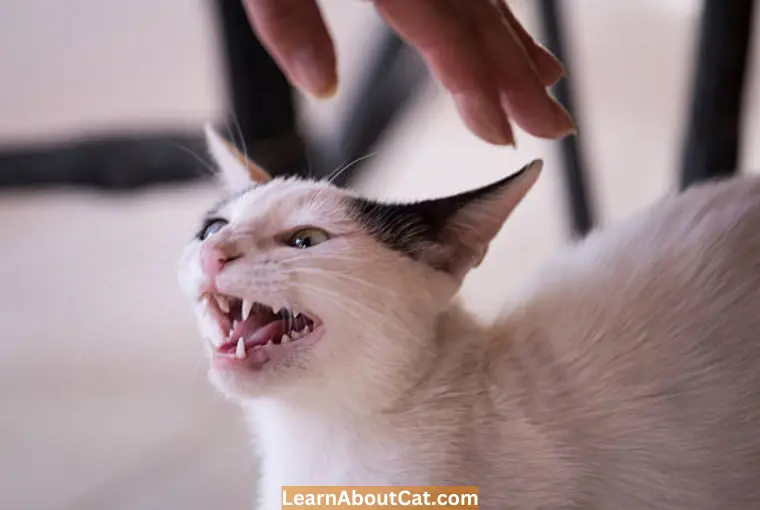
1. Stay Calm and Stop what you’re doing
Keep calm and avoid any sudden movements when your cat hisses. Communicate with your cat in a soothing and calm voice to help them calm down.
As soon as possible, stop what you’re doing. For instance, you should stop caressing your cat right away. Remove your cat as soon as possible from anything else that is plainly causing them to feel frightened or uneasy.
2. Give Your Cat Space
You should give your cat some space and time to calm down if they hiss at you. Avoid approaching them and give them the space they need to feel safe and secure.
Give your cat some time to relax. This cooling-off period will last a different amount of time for different cats. It will also depend on how alarmed and enraged they feel as a result of their previous interaction.
3. Provide a Safe and Comfortable Environment
While they are cooling down, let your cat hide. Cats naturally want to hide when they feel frightened or anxious; if this instinct is not permitted, it may cause cats to become more agitated, disturbed, and angry.
Make sure your cat has a safe and comfortable environment where they can retreat when they feel threatened or anxious. Provide hiding spots, comfortable bedding, and toys to entertain and relax them.
4. Identify the trigger
Try to identify the cause of your cat’s hissing. Is it a new person or animal in the home? Has there been a change in the environment? Once you know the trigger, you can take steps to address it.
5. Avoid Punishing Your Cat
You shouldn’t take things personally, but perhaps they were just dealing with too much at once. Hissing is a natural behavior for cats, and punishing them for it will only make them more fearful and anxious.
Don’t ever use punishment to stop an argument. Punishment can exacerbate negative behaviors in cats and increase their fear and anxiety. Instead, reinforce positive behaviors through training and positive reinforcement.
Instead, reinforce positive behaviors through training and positive reinforcement. and try to understand the reason behind their behavior and address the underlying issue. Once they have calmed down, they will return to their previous states of amity and delight.
6. Seek Professional Help if Necessary
If you haven’t already, you should take your cat to the veterinarian if you believe it is hissing because it is in pain. In order to address the patient’s illness, they will be allowed to write prescriptions for medicine. Or, at the least, they’ll be able to manage your cat’s pain while calming it down effectively.
Which Cat Breeds Hiss the Most?
Despite cats’ sweetness and loveliness, some breeds tend to have a truculent temperament, which may cause them to hiss more frequently.
The Siamese breed. Among all cat breeds, the Siamese is the most aggressive. This may be because Siamese cats are known for being jealous of other cats.
List of cat breeds which hisses the most
- Siamese
- Sphynx
- Bombay Bengal
- Pixie Bob
- Scottish Fold
- Egyptian Mau
- American Wirehair
- Singapura
- Korat
- Cymric
Frequently Asked Questions
What does cat hissing sound like?
Cat hissing is a vocalization that cats make when they feel threatened or uncomfortable. It’s a low, rumbling sound that starts in the back of the cat’s throat and can be accompanied by other behaviors, such as flattened ears, a puffed-up tail, and an arched back.
Why do cats hiss at each other?
Cats hiss at each other for several reasons. One of the most common reasons is to establish dominance or to protect their territory. If one cat feels threatened by another, it may hiss as a warning to stay away.
Why does my cat hiss at my other pets?
If you have multiple pets in your home, your cat may hiss at them to establish dominance or protect their territory. The natural territorial behavior of cats could make them see other pets as a threat to their resources and space.
Why is my cat hissing at me when I try to pet them?
Your cat may be hissing because they are overstimulated or feel threatened by your petting. Try to pet your cat gently and avoid aggressive or prolonged petting sessions.
What causes kittens to hiss?
A hiss is an emotional response to discomfort, fear, or stress. Kittens who hiss feel scared, insecure, and uncomfortable. Kittens may hiss to tell another cat to stop playing rough with them. One example would be if another kitten were playing too rough with your kitten.
What causes mother cats to hiss?
There is a strong protective instinct in mother cats toward their kittens. A cat will hiss when another cat, a person, or any other animal gets too close to them to set boundaries. Additionally, they may hiss when they are being weaned to let the kittens know they are no longer a source of food.
Final Thoughts!
If your nice cat suddenly hisses at you, try not to become angry. There are several plausible possibilities, and it’s clear that your cat is upset about something. But if you identify the cause of your cat’s aggressive behaviour, solving the problem is rather simple.
If they are sick or injured, treatment is essential by the vet. Once they are fully recovered, you should stop being angry with them or anybody else. And if everything is OK, you may at least relax.
You can take steps to ease any further stressors that are causing your cat to hiss at you after you are certain that your cat is okay. I suggest consulting a behavioural professional if you can’t figure out what’s wrong. You and your feline companion may look into the source of your cat’s aggressive behaviour.
Related Posts:
Who is Isabella?
My name is Isabella, and I am a dedicated and knowledgeable cat enthusiast. With years of experience caring for cats and a deep love for felines, I made a mission to help other cat lovers navigate the challenges of cat ownership.

